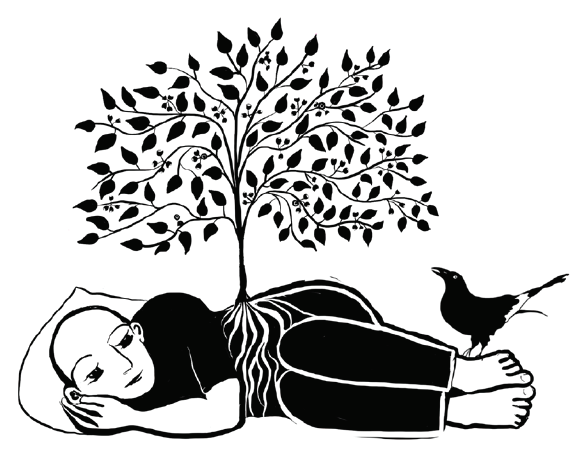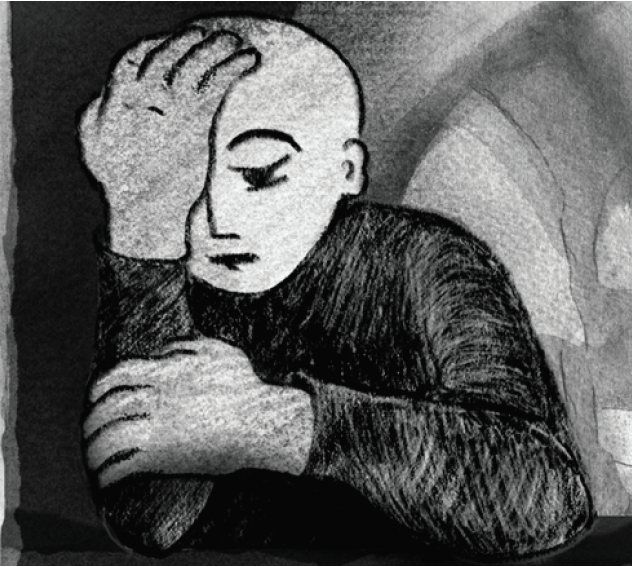Reflection on Sabbath Time by Charles Ringma
Thursday, 17 May 2018
| Karina Kreminski

When I explain missional spirituality to my theology students, I tell them that it functions as a critique of usual interpretations and practices of Christian spirituality that focus on withdrawing from the world. So I was very interested to read Charles Ringma’s new book, Sabbath Time: a hermitage journey of retreat, return and communion.
As you can tell from the title, this is a book about withdrawing from day-to-day life in order to pay more attention to God. Ringma was led to this retreat because he felt more and more a sense of wanting to withdraw into a time of Sabbath for a six-month period where the focus was on God rather than work. His focus was not even necessarily on growth in his walk with God. Instead, he wanted to be as unproductive as possible and to lie ‘fallow for a period’ (2).
This isn’t to say he wasn’t tempted to get results. Being a self-confessed driven type of person, his thoughts often leaned towards desiring a sense of outcome and accomplishment from the experience. However, in my view his determination to be ‘unproductive’ paid off. In a world that is geared towards activism and an obsession with connection, Sabbath Time makes a counter-cultural statement about the need for disconnection, withdrawing and silence.
Sabbath Time is not a recipe book about ‘how to get the most you can from God during a Sabbath rest’. It avoids useless formulas and, instead, is a very honest and vulnerable witness to Ringma’s experience during a prolonged period of Sabbath. His hope was not for a spiritual ‘top up, … so that we are bright and chirpy for work on Monday morning and the rest of the week, but rather to renew us in the love of God’ (ix).
This short reflective book is separated into three movements that reflect the trajectory of the author’s experience on retreat: Into the Hermitage, The Journey Home and Communion. It offers several brief yet stimulating and profound reflections on his time during the retreat.
Here is one of the reflections that stirred me, called ‘Being’ (6-7):
15 May 2016
We speak a lot these days about human agency. This concept proclaims that we can do something and that we can and should act even in the face of overwhelming odds. While we all act into the world in a whole variety of ways, it is all too obvious that some people make a much greater impact (for good or ill) than others.
This also means that some people may feel that they have little influence. And this may well lead to various forms of passive resignation. This may well become the pervasive sense that many people have in the face of the powers — the powerful institutions of our time amidst the merger of political, banking, multinational, and military configurations.
Anyone who is part of any protest movement today is aware of the entrenchment of power and the questionable effect we have in advocating another way.
Yet it is important that we continue to act into life, even when we know that we can do little. Scholars have rightly emphasized that we are most fundamentally creatures of externalization. We say and do things. We dream and make things. We shape our lives, relationships, and world in some way. We are actors, if you like, in the human arena.
This idea has theological resonance. Created in the image of God, we are called by this Creator God to shape the human community. However, this shaping is to reflect the redemptive and healing passion of God and the quest for justice and the common good.
What happens when a person “downs” tools and enters a time of nonengagement, Sabbath spirituality, reflection, and prayer? And what if this downtime is for an extended period—not just an hour in a day, but a time of days, weeks, or even months?
There are no simple and singular answers to these questions. But there are some key contours. The most obvious is that it is difficult to “down” tools. And quickly following on the heels of this, it is easy to feel useless, even if we are spending more time in meditation and prayer. But more deeply and corrosively, we can become more anxious and fearful. It is as if everything on our horizon looms larger and darker.
A possible implication of this is that not acting increases our levels of anxiety and powerlessness. Thus human agency is psychologically beneficial. To act and to do something staves off the sense of chaos that can overwhelm us.
This raises a question about the value of Sabbath time. What about taking time out from our busy activities? What about taking time to reflect and to pray? Is that not doing something? Is that not exercising human agency? Is that not also acting into life, but in a very different way?
It is, but this different way leads us into very unfamiliar territory. It is the road less travelled. And while this road may lead to certain outcomes, more likely it will be shrouded in mystery. And while it may lead to peace, we will need to confront demons, and a certain denuding will need to take place, particularly the stripping away of the illusions of our work-a-day world and the ideas that our busyness is helpful and productive.
The challenge here is clear enough. We need to find the way of prayer as another path of human agency. And this will undoubtedly call for a profound reorientation, since prayer is often seen as a useless waste of time or a cop-out. In the challenging days ahead, this path may become for me the way towards a more authentic way of being.
In usual style and like all great mystics, Ringma refuses to separate contemplation from action. In every sense he makes it impossible for us to find the interstice where we can slice between the two in order to satisfy our usual longing for dichotomies. He writes in a chapter titled ‘Seeing’:
Whether we are in a monastery, a hermitage, or practicing prayer and meditation at home, work or in a recreational space, we should never seek to escape the realities of our world. In fact, we withdraw in order to be with God in friendship and love and to see our world more clearly so that we can engage it from a more prayerful space. (20)
This firm conviction regarding the interdependence between contemplation and action is summarised in the author’s pithy saying: ‘activism is the daughter of mysticism’ (23). How we need to hear this in these times when we value and hear more about protest, mission and pragmatism than reflection, contemplation and the skill of listening.
Sabbath Time is a testimony to a journey that Ringma undertakes without making any demands on God or having any expectations regarding outcomes. During his Sabbath, he openhandedly wrestles with God, finds peace, is disturbed, encounters more unanswerable questions and, finally, wonders about how he can live out a daily ‘hermitage of the heart’ after his return. This is a very good read, - but read it slowly in order to take time to chew on some of the tasty thoughts that emerged during Ringma’s Sabbath. It helped me to slow down, see the value of paying attention to God for its own sake and think about ways in which I could foster a Sabbath time in my own way.
Sabbath Time can be purchased here.
Karina Kreminski is Lecturer in Missional Studies at Morling College. She has pastored a church for 13 years and is now looking into starting a faith community in Sydney's inner city. Karina recently published her book, Urban Spirituality: Embodying God's Mission in the Neighbourhood. Karina blogs at http://www.karinakreminski.com.au/.
Images: From Sabbath Time. By Teresa Jordan.
